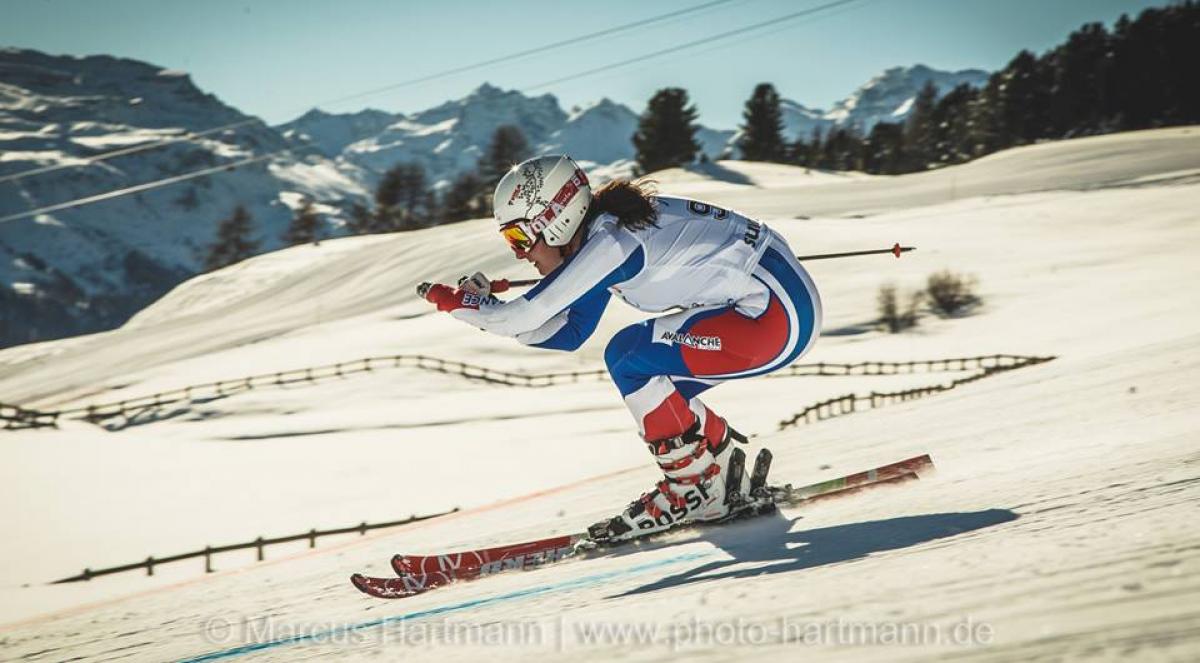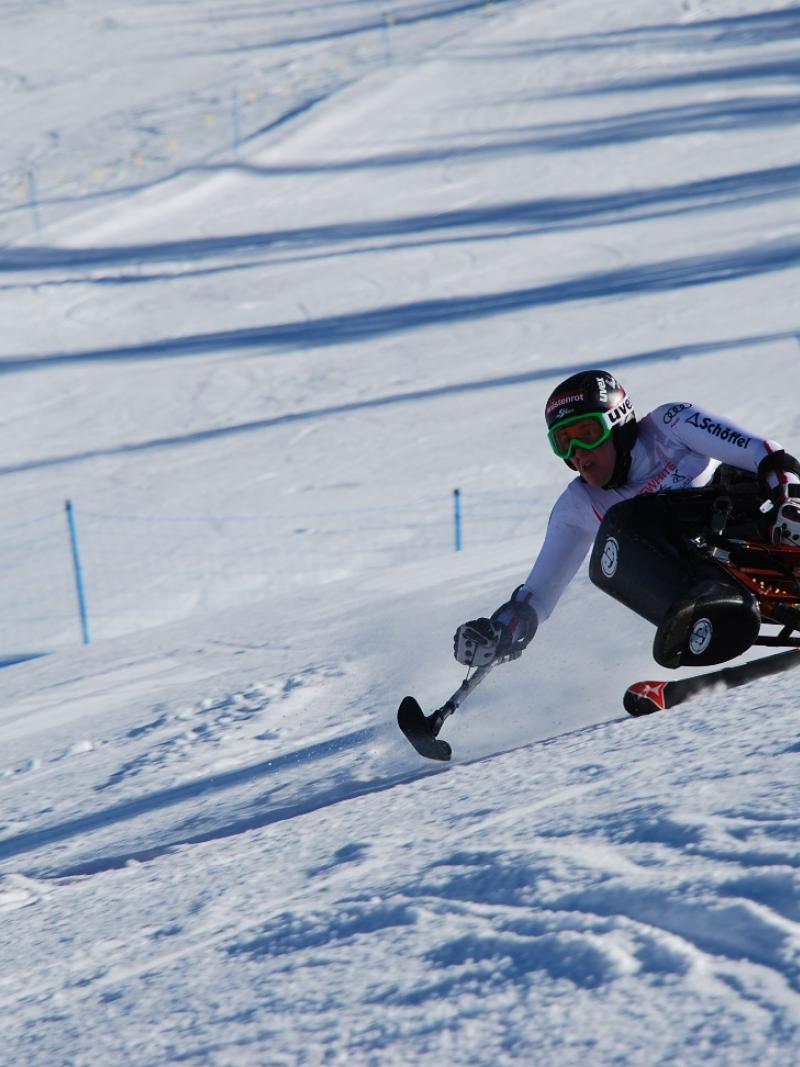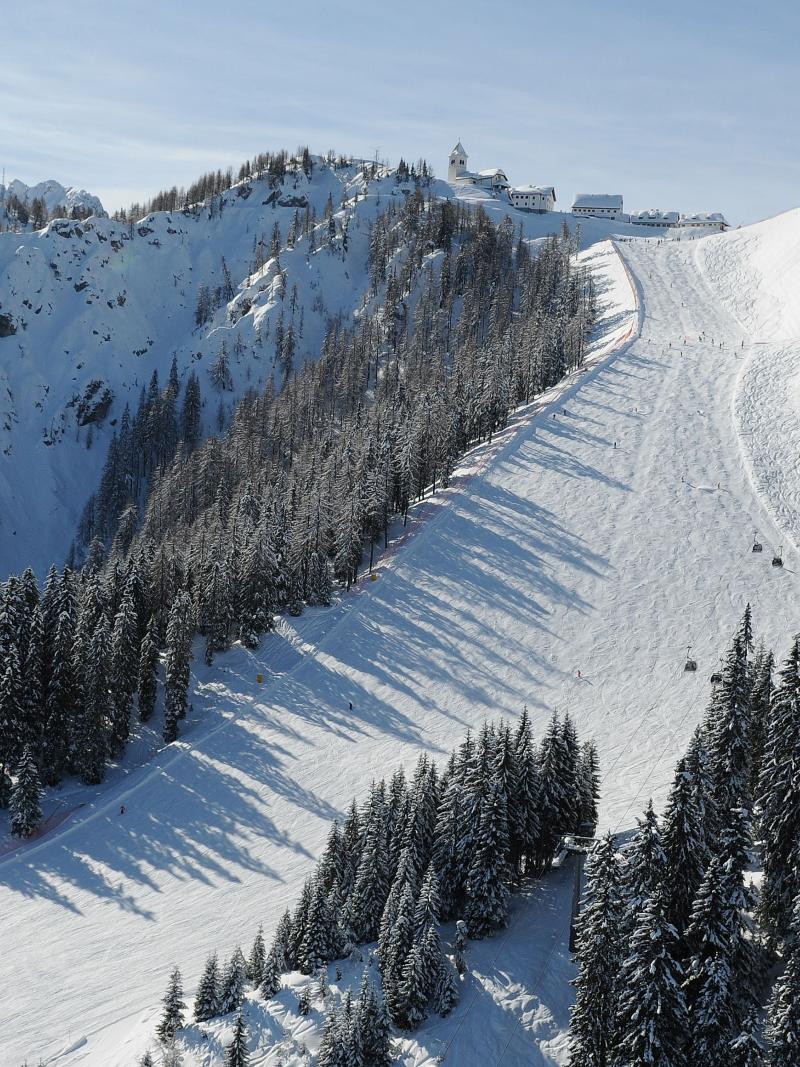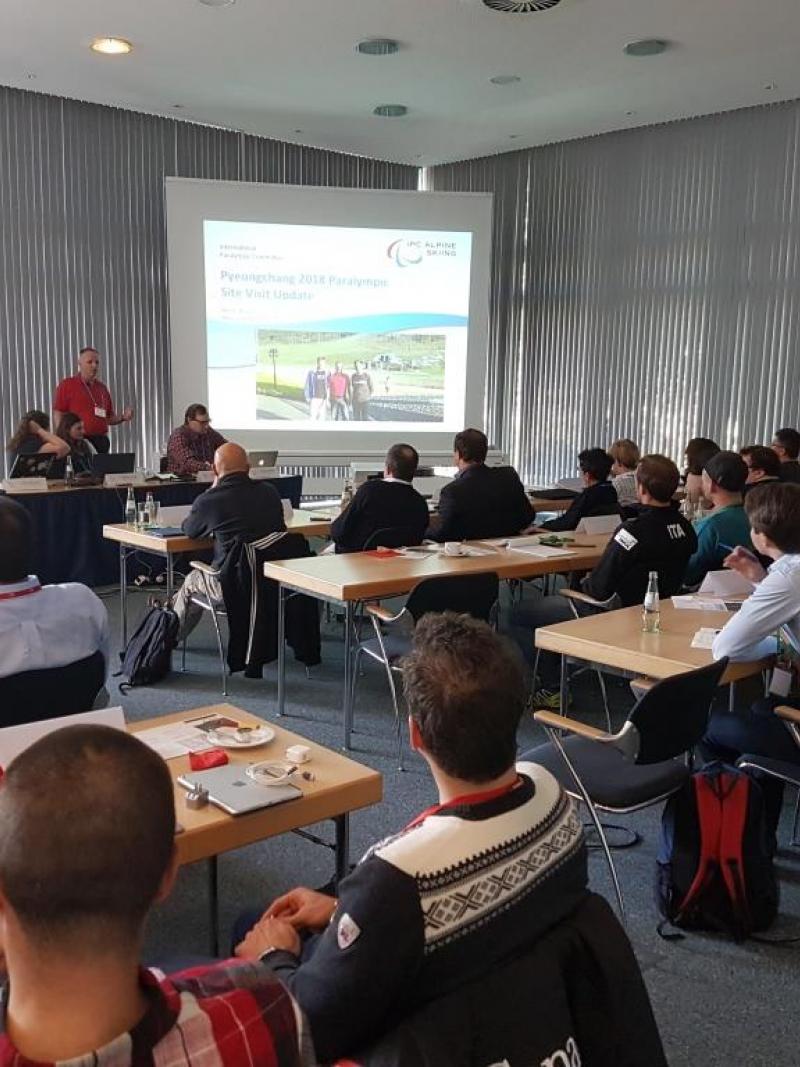Snow sports to work with FIPS
IPC Alpine Skiing and Snowboard have agreed a closer working relationship to ensure a standardised approach to rescues on the mountain. 01 Jun 2016
France's Marie Bochet in action at the 2016 St Moritz World Cup
“It will ensure that all ski patrollers understand and are trained to deliver the most appropriate care to meet the specific needs of para athletes.”
IPC Alpine Skiing and Snowboard have agreed to a new relationship with the Federation Internationale des Patrouilles de Ski (FIPS) with the aim of standardising mountain rescues for Para athletes in competitions.
Peter Van de Vliet, International Paralympic Committee Medical and Scientific Director, recently gave a presentation to the FIPS Congress in which he talked about the unique requirements for safely extracting Para athletes from the hill.
There is currently no worldwide standard procedure for rescuing Para alpine skiers and Para snowboarders. However the increasing number of competitions and athletes means that the time is right to start work on a uniform approach.
The long-term aim of the partnership with FIPS is to train ski patrols in each country and region, which will also benefit amateur skiers who may fall during recreational skiing.
Van de Vliet’s talk presented all classifications within Para alpine skiing and Para snowboard and the different equipment used by physically and visually impaired athletes.
He also talked about the nature and mechanisms of injury in the sport to give attendees an idea of the risks associated with the athlete population.
“I was delighted to get the chance to present to FIPS on this crucial issue. Para alpine skiing and snowboard present some very unique challenges to the planning and delivery of ski patrols,” Van de Vliet said.
“Safety is very important and we work to ensure that the standard of rescue is the same at all competitions, whether it is a Paralympic Winter Games or a regional Cup. But working towards standardised methods of extraction will help us to raise the bar even higher.
“Those present were very interested to hear the advice we give to event organisers and were keen to find out more about how they can make a contribution.
“Most importantly however is that through FIPS we can also reach out to all recreational skiers with an impairment in ski resorts, who will benefit from all ski patrols being trained to meet their particular needs.
“I look forward to developing our relationship with FIPS further to make sure we can keep pushing the envelope of safety in the sports, be it recreational or competitive.”
Jean-Louis Tuaillon, President of FIPS, said: “FIPS recognises the benefit to both organisations of this partnership. It will ensure that all ski patrollers understand and are trained to deliver the most appropriate care to meet the specific needs of para athletes.”
The next steps are to develop a formal Memorandum of Understanding between IPC Alpine Skiing and Snowboard and FIPS, develop training and course material, integrate a module into FIPS member ski patrol training courses and test example training with some FIPS members.







